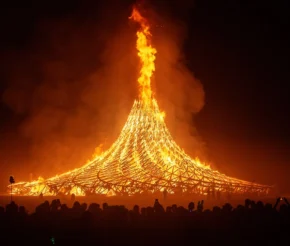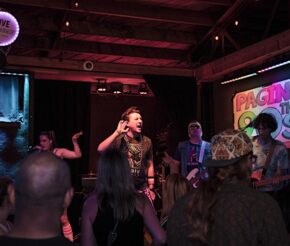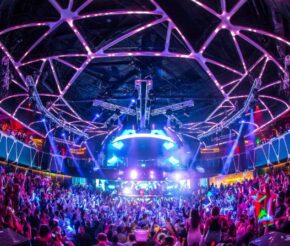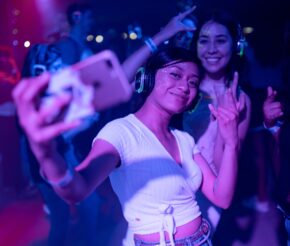- Advertise
-
Subscribe
What Incels Think About Nightclub Culture

The growing online community of ‘involuntary celibates’ (or ‘Incels’) – people who want to have sex but find themselves unable to – is often thought of as a secluded underworld, confined to some far-off, darkened corner of the web away from the prying eyes of ‘mainstream’ society.
In reality, these online forums, often characterised by violent misogyny, are frighteningly accessible to anyone with a computer and basic level of curiosity.
Within the space of about fifteen minutes, I managed to find myself scrolling through threads about ‘dumb whores’ and ‘pig women’ – not quite what I expected to be reading at 9:00am on a Friday morning, but eye-opening nonetheless.
You’d be forgiven for thinking that Incels avoid clubs like the plague
Like me, you’d be forgiven for thinking that a group of (mostly) men with a passionate hatred for women and hookup culture would avoid activities such as clubbing like the plague. But also like me, you’d be mistaken.
What I learned from my brief foray into ‘Inceldom’ is that this community loves to philosophise about real-life scenarios.
They construct detailed analyses of modern life and the ways it disadvantages men, and in order to do that, they have to get out there and experience it like everyone else.

Many of the Incels I spoke to had been clubbing before. Some on multiple occasions.
For a community that prides itself on its total exclusion from all things social and ‘mainstream’, I found that pretty surprising in and of itself.
But maybe that was just my naivety. According to one frequent poster on a ‘blackpilled’ forum I visited, nightclubs are one of the places where Incels first experience the bitter taste of rejection.
In some cases, they even serve as catalysts for radicalisation, transforming insecure schoolboys into extremist woman-haters if they choose to stoke the flames of their rejection online.
Incels refer to nightclubs as ‘venues wherein men are exploited’

As one user put it: the nightclub is a place where men who aren’t considered conventionally attractive watch ‘all the hotties in their tight skimpy clothing wandering around, talking to chads’ (conventionally attractive men who 80% of women want to date – according to a much-cited OKCupid study the Incel community loves to reference).
The conclusion that they draw from all this is that nightclubs are ‘venues wherein men are exploited’.
They are ‘sexploit clubs’ – as one website saw it – where desirable men and women reign supreme, leaving those who don’t make the cut to dance on their own, rejected and resentful.
They believe clubs are engineered to disorientate male party goers
And their analysis goes even deeper. According to the hypotheses of a popular forum: clubs are specifically engineered to disorientate male party-goers, producing an ‘anxiety-inducing’ atmosphere with smoke machines and strobe lights that leaves men all the more vulnerable to the exploitative tendencies of ‘Beckys’ and ‘Stacys’ who milk them for free drinks.
Many also expressed resentment over the different entry fees clubs charge for men and women (proof that owners are only out to ‘make money out of thirsty, unfortunate and layless men’), along with the penchant of club goers for alcohol and drugs (termed ‘health inhibitors’ and used as evidence that clubs ‘don’t care if you’re an average frustrated chump who dies a slow death’… but only if you’re a man, of course).

Not one user seemed to notice that these issues might not stem from ‘female supremacy’, but from objectifying attitudes towards women themselves.
Free entry on a ‘Ladies night’ is just using women’s sexual desirability as currency; smoke machines and strobe lights make men feel unseen and uninhibited in their behaviour towards women; even alcohol and drugs play an obvious role in rape culture, leaving women vulnerable to be taken advantage of by predatory men.
But maybe Incels aren’t ready for that conversation just yet.
They get hooked on blaming women for everything they don’t like
It’s not difficult to understand how our sex-obsessed society might leave many feeling alone and dejected if they’re unable to find a partner. What is difficult to comprehend is how so many young men get hooked on the idea that everything they don’t like about the world can be blamed on the opposite sex.
Their logic might be dismissable, but the threat they pose to women is anything but.
Ultimately, in their rejection-fuelled fury, the Incel community has taken the night industry’s relics of sexism and transformed them into evidence that men – specifically less conventionally-attractive ones – have it the hardest.






